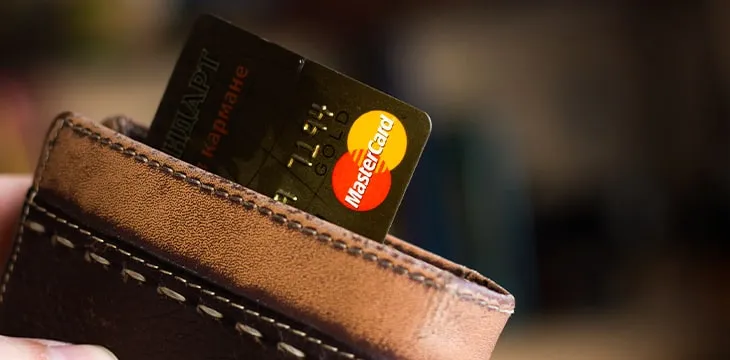|
Getting your Trinity Audio player ready...
|
Mastercard is the latest global giant to venture into the world of non-fungible tokens (NFTs) and the metaverse. The payments giant has filed 15 trademark applications ranging from downloadable music files backed by NFTs to an NFT marketplace.
Mastercard has filed 15 trademark applications for
▶️MASTERCARD
▶️PRICELESS
▶️Its Circles LogoIndicating plans for
✅NFT backed media
✅Payment processing in the Metaverse
✅Marketplaces for digital goods + NFTs
✅E-commerce transactions in the Metaverse#NFT #Metaverse #Web3 pic.twitter.com/IlamOZ6OLZ— Mike Kondoudis (@KondoudisLaw) April 8, 2022
Mastercard filed the applications on April 4, the United States Patent and Trademark Office’s (USPTO) records show. They include one for “provision of an online marketplace for buyers and sellers of downloadable digital goods and media authenticated by non-fungible tokens (NFTs),” showing the company’s intent to venture into a lucrative market in 2020, generated over $40 billion in 2021, rivaling that of fine art.
Another application contains plans for “processing of virtual credit card, virtual debit card, virtual prepaid and virtual payment card transactions in the metaverse… Payment processing services, namely credit card, debit card, prepaid card, gift card and payment card transaction processing services in the metaverse; Providing financial information in the metaverse and other virtual worlds.”
Mastercard also wants to protect its name, tagline, and interlocking circles logo against use in “events and performances in the metaverse in the fields of finance, cryptocurrency and NFTs.”
Speaking to Business Insider, a Mastercard spokesperson made it clear that the applications don’t mean that the company will launch these services soon.
“We are continually looking for opportunities to deliver new and unique experiences to our customers and cardholders. This filing is simply part of that effort, ensuring that the trademark protection for our brand carries through to any potential use in the metaverse uninterrupted,” the spokesperson said.
The company filed the applications on a 1b basis, which shows that a company could apply for the trademarks in the future but with no obligation to get started on it right away.
Mastercard joins many other financial services giants such as Visa, JP Morgan, and American Express, who have been filing metaverse and NFT-related trademark applications in recent months as these two sectors explode in popularity and market value.
Mastercard is no stranger to blockchain and digital assets. The company is well-known to be one of the biggest forces behind BTC, spending a fortune to stifle Satoshi Nakamoto’s vision of peer-to-peer electronic cash, which would have been a direct threat to its revenue sources.
Through the Digital Currency Group, Mastercard has been behind Blockstream and its control of BTC protocol developers for seven years now, with investments in dozens of other companies, from Coinbase, CoinDesk and Kraken to Lightning Labs, Circle, Ripple and Grayscale.
Watch: CoinGeek New York panel, Blockchain for a Better Supply Chain & Sustainability

 07-15-2025
07-15-2025 





